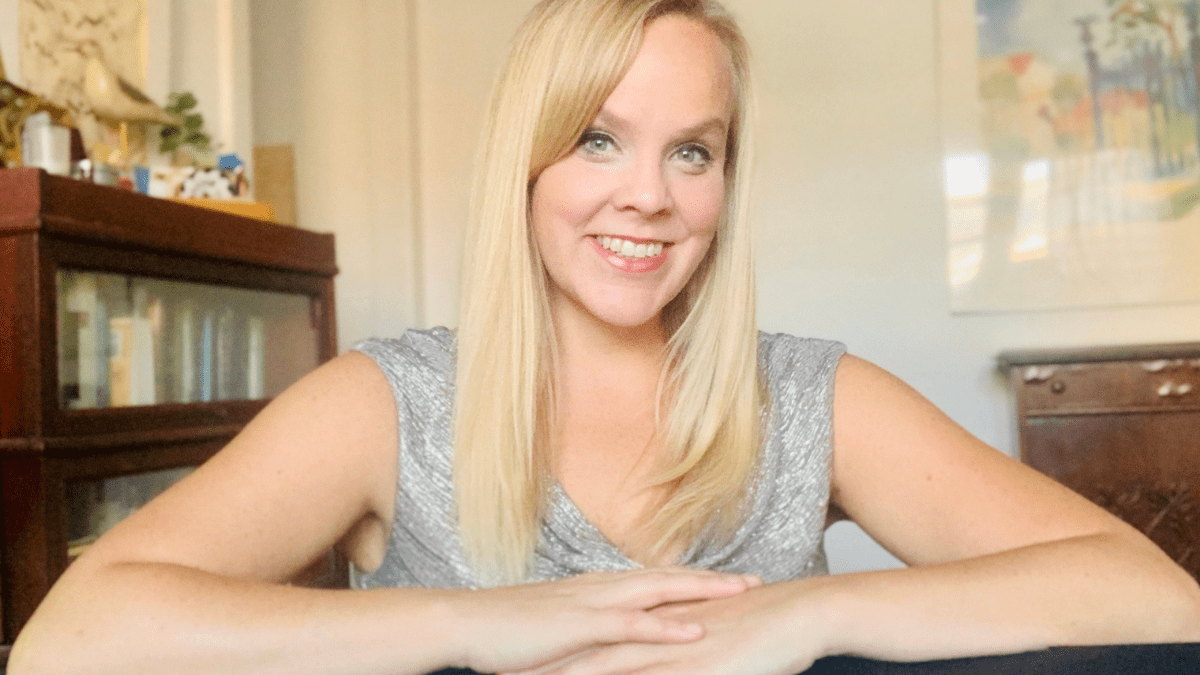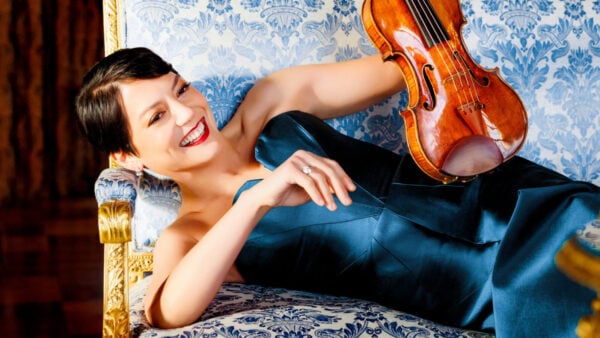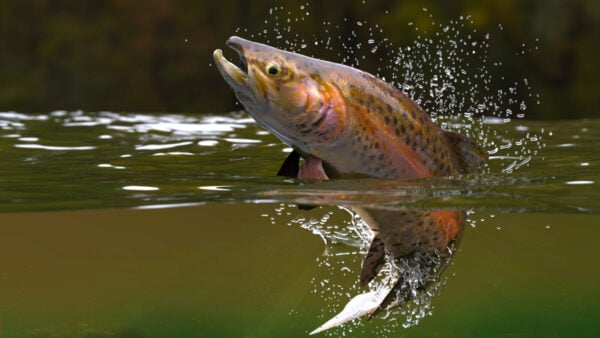
Susan Nelson
If you’ve attended Music of the Baroque or Grant Park Music Festival concerts, you probably have heard Susan Nelson as a chorus member or an occasional soloist. And if you have attended the Bach Cantata Vespers in River Forest, then you certainly have heard the silver-toned soprano, who is often artistic director Michael D. Costello’s first-choice soloist.
An alumna of the Eastman School of Music, Nelson is currently an adjunct professor at Concordia University, on the chorus roster for Grant Park Chorus and Music of the Baroque, and music director at Grace Lutheran Church in Mt. Prospect. She is treasured for her superior sight-reading skills, unfaltering technique, and no-nonsense professionalism. “Just let Susan Nelson sing it” is a common refrain from colleagues when a soprano solo is being assigned.
With a wide range of musicmaking activities paused because of the pandemic, what is a versatile and active musician like Susan Nelson to do? The irrepressible artist has been learning songs by female composers and songwriters across various genres. Singing to her own accompaniment, Nelson has recorded these songs to share with her Facebook followers.
On Wednesday, October 7, Susan Nelson reaches a milestone in her quarantine project. The Puccini-esque “Foglie secche” by Italian composer and conductor Eugenia Calosso is the 100th song by a female composer she has recorded. WFMT spoke with Susan Nelson about her Songs by Women project. You can listen to “Foglie secche” and a few select songs below.
WFMT: How did this project begin, and what made you decide to focus on female composers?
Susan Nelson: Until last weekend, my last public solo performance was March 20. Almost all of my gigs dried up around March 21, including Music of the Baroque, which ended its season early; and Grant Park Music Festival, which didn’t exist at all this summer.
This project began as a fluke. I came across a book that my mom had given me of Broadway songs and discovered a piece called “Thank Heaven for You,” from Mikki Grant’s musical Don’t Bother Me, I Can’t Cope. When I learned that it was by a female Black composer, I thought it would be interesting to find more voices that I hadn’t heard of before. I looked through my own library and found that I really didn’t have that much repertoire by female-identifying composers. I knew there was a lot more out there besides the women that we associate with their male counterparts like Clara Schumann, Alma Mahler, and Fanny Mendelssohn. Many of these women trained alongside men who “made it” in the business, but themselves weren’t highlighted as viable, valuable composers. Now their names have been forgotten.
This erasure has also happened with Black composers, so-called “world music,” and anything not from the Western classical tradition or male-produced. It often seems like women were only composing pop music or ballads that were for other women, and not for the likes of the educated population. After going through so much music online and in other resources, I’ve discovered there’s a wealth of music that is just as valuable by women composers, and as I delve deeper into the genre, I’m finding more opportunities to sing pieces by women of color and looking to expand into other languages and places for repertoire.
WFMT: Have you decided how this work might manifest in an in-person performance once that is possible?
Nelson: I think my end goal right now is to curate the best of the recordings that I’ve made so far and put them up on YouTube as a resource. Beyond that, I’m interested in seeing if some of these works can be entered into the mainstream repertoire, especially for students. After the events of this year, more than any other time, it’s really important to say the names of people who haven’t been heard from. That’s the only way that we can make sure that their voices are not lost to a whole lot of noise from the loudest, most powerful people. In looking forward to a recital of some of these works, I really am hoping to do more complex things that I haven’t been able to put together on my own with my keyboard skills.
Follow Susan Nelson’s Songs by Women project on YouTube here.






